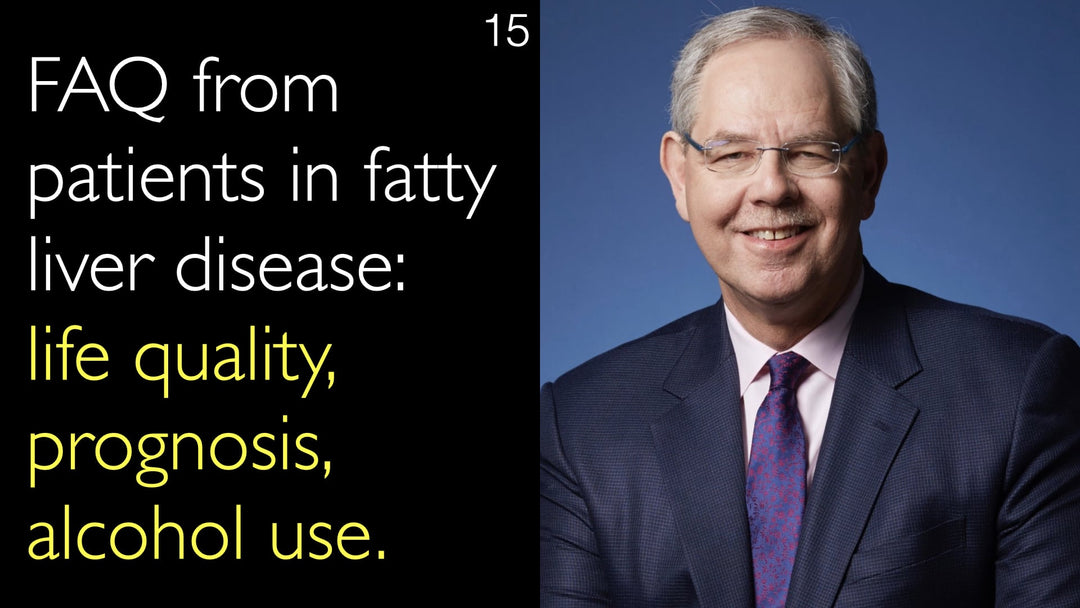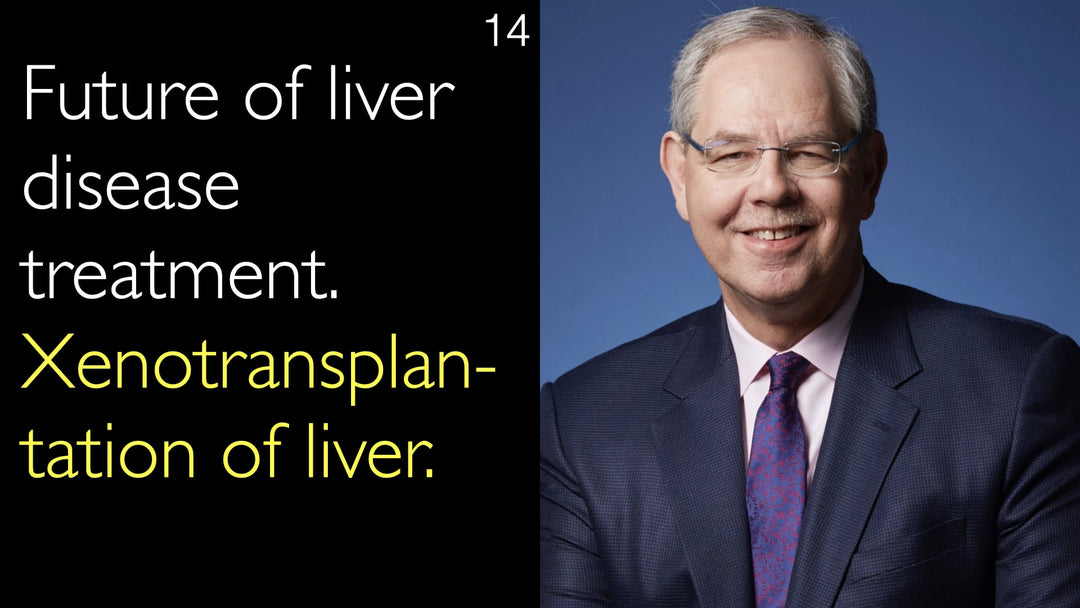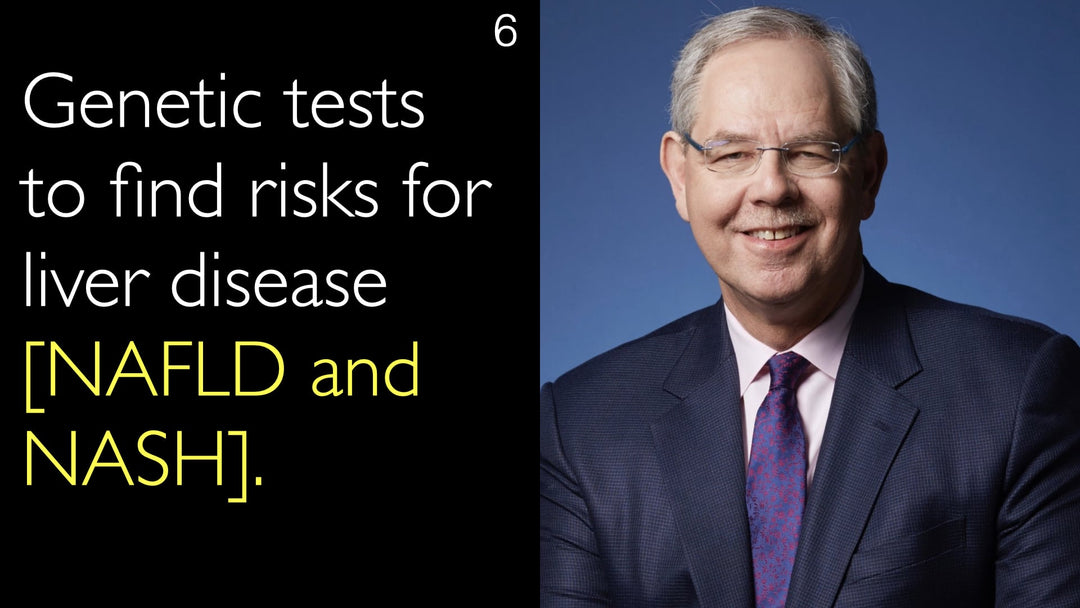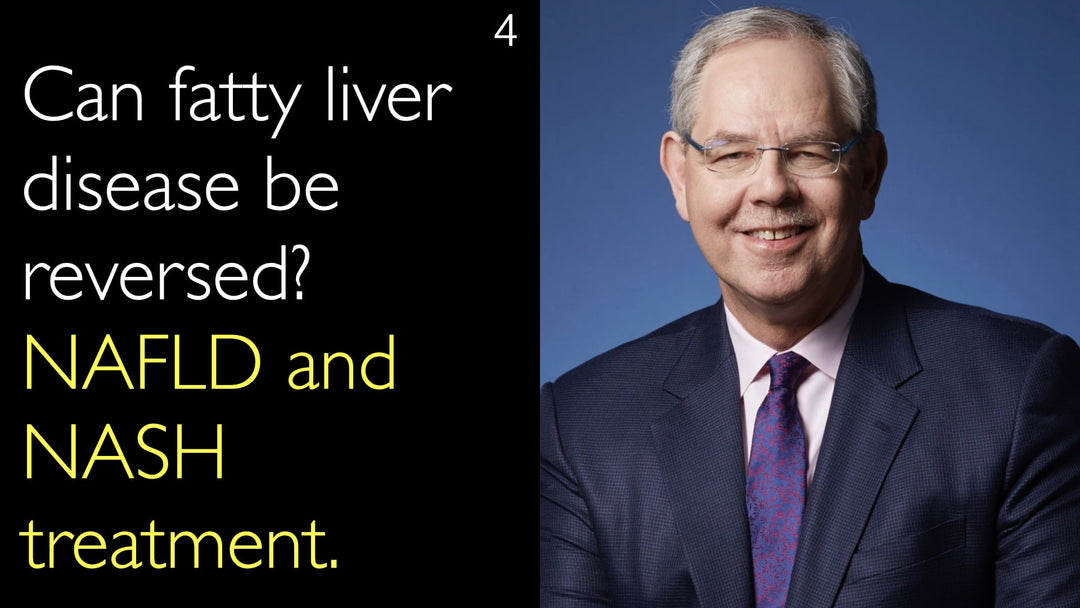Leading expert in liver disease, Dr. Scott Friedman, MD, explains the critical questions patients with fatty liver disease should ask their doctors. He discusses the impact of NAFLD and NASH on life expectancy and quality of life. Dr. Scott Friedman, MD, emphasizes the importance of understanding disease prognosis and treatment options. He highlights key resources for patient education and support.
Essential Questions for Patients with Fatty Liver Disease: Prognosis, Lifestyle, and Treatment
Jump To Section
- Key Patient Concerns About Fatty Liver Disease
- Impact on Life Expectancy and Quality of Life
- Liver Transplant Considerations
- Diet and Lifestyle Modifications
- Finding Reliable Information and Resources
- Preparing for Doctor Visits
- Full Transcript
Key Patient Concerns About Fatty Liver Disease
Patients with non-alcoholic fatty liver disease (NAFLD) and its more severe form, non-alcoholic steatohepatitis (NASH), often have fundamental questions about their condition. Dr. Scott Friedman, MD, a leading hepatologist, identifies the primary concerns that occupy patients' minds. These questions revolve around the disease's potential to alter their daily lives and long-term health outcomes.
According to Dr. Friedman, the most common patient inquiries focus on disease progression and personal impact. Patients want to understand how their diagnosis will affect their future wellbeing and daily functioning.
Impact on Life Expectancy and Quality of Life
One of the most pressing questions for fatty liver disease patients involves life expectancy and quality of life. Dr. Scott Friedman, MD, notes that patients consistently ask: "Will this change my life? Will this make me sick? Will this shorten my lifespan?" These concerns are completely valid, as NAFLD and NASH can significantly impact long-term health outcomes when progressive.
The severity of liver disease determines its effect on mortality rates. Early-stage fatty liver disease may have minimal impact on life expectancy with proper management. However, advanced fibrosis or cirrhosis can substantially affect both quality of life and survival rates.
Liver Transplant Considerations
For patients with advanced liver disease, the possibility of requiring a liver transplant becomes a critical concern. Dr. Scott Friedman, MD, emphasizes that this question is particularly relevant for those with more advanced stages of non-alcoholic steatohepatitis. The progression to end-stage liver disease may necessitate transplant evaluation in severe cases.
Liver transplantation becomes a consideration when cirrhosis complications become unmanageable with medical therapy alone. Early diagnosis and aggressive treatment of NASH can help prevent progression to this advanced stage.
Diet and Lifestyle Modifications
Dietary changes and lifestyle modifications represent crucial components of fatty liver disease management. Dr. Anton Titov, MD, highlights how patients frequently inquire about nutritional approaches to managing their condition. Appropriate dietary adjustments can significantly impact disease progression and overall liver health.
Medical experts typically recommend weight loss through calorie restriction and increased physical activity. A Mediterranean-style diet rich in fruits, vegetables, whole grains, and healthy fats has shown particular benefit for NAFLD patients. Avoiding sugar-sweetened beverages and processed foods is equally important for liver health improvement.
Finding Reliable Information and Resources
Patients often seek guidance on where to find accurate information about their liver condition. Dr. Scott Friedman, MD, specifically recommends the American Liver Foundation (ALF) as a valuable resource for patient education. This organization provides comprehensive information about various liver diseases, including NAFLD and NASH.
The ALF website offers educational materials, support resources, and current research updates. Patients can access reliable information about treatment options, lifestyle recommendations, and new developments in liver disease management through such established organizations.
Preparing for Doctor Visits
Effective communication with healthcare providers is essential for optimal fatty liver disease management. Dr. Scott Friedman, MD, advises patients to arrive at medical appointments prepared with specific questions and concerns. This proactive approach ensures that consultation time is used efficiently and all relevant issues are addressed.
Patients should discuss family history implications, as genetic factors can influence NAFLD development and progression. Dr. Anton Titov, MD, emphasizes the importance of these doctor-patient conversations for developing personalized treatment plans. Bringing questions about medication options, monitoring frequency, and specialist referrals can lead to more comprehensive care.
Full Transcript
Dr. Anton Titov, MD: Professor Friedman, with your vast experience in liver disease research and treatment, what are the questions that patients with non-alcoholic fatty liver disease, with non-alcoholic steatohepatitis should ask but perhaps are not asking that much? And what are the top questions that patients with chronic liver diseases do ask?
Dr. Scott Friedman, MD: Well, I think the main question every patient wants to know is: will this change my life? Will this make me sick? Will this shorten my lifespan? Will I need a liver transplant? In some more advanced patients, so I think that's certainly the question that every liver doctor who sees a patient with liver disease may be confronting.
But I think the other questions also are something we can imagine. What about my diet? What about my family? Where do I go with more questions? I think those are the kinds of questions we can anticipate.
There are lots of resources. The American Liver Foundation has great information for liver patients. You can go to their website, as ALF now is increasingly reaching out to patients. There are a number of resources that patients will seek from the internet to gain more information.
Patients should certainly come to their doctor armed with those questions. But I think, you know, they're sometimes the answers are easy. We can reassure a patient. Sometimes the answers are unknown. And sometimes the answers are hard, meaning we have to tell patients even though they have no symptoms, they have advanced liver disease. And we need to pay attention very soon.
Are there any questions that patients perhaps do not ask as often as they should? I don't know. Patients are us, you know.







